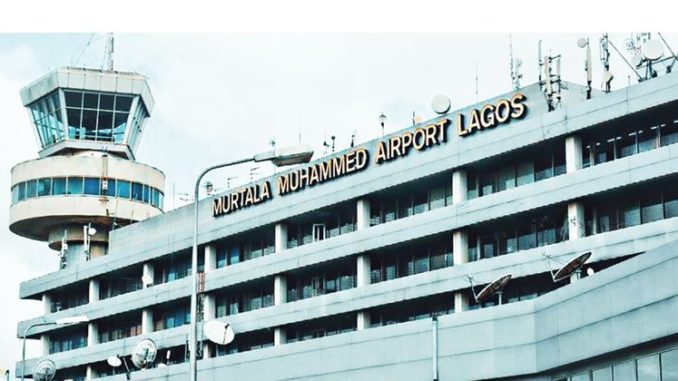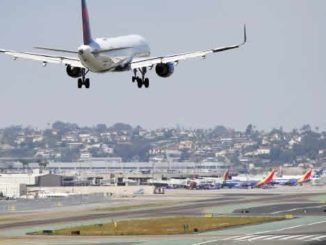
Domestic airlines have continued to cut down on their workforce as the crisis in Nigeria’s aviation industry lingers, it was learnt on Monday.
It was also gathered that though plans were on the way to re-engage some of the disengaged workers, this would basically happen when more airplanes belonging to the affected carriers start to operate.
Airline officials told our correspondent that workers who were asked to leave were mainly those associated with the day-to-day operations of airplanes, as the crisis led to the drop in the number of functional aircraft in the sector.
This came as officials of Dana Air confirmed that though the airline had been out of operations for about a month, it was working to resume operations in September.
On July 31, 2022, Sunday PUNCH exclusively reported that the persistent rise in the cost of aviation fuel, known as jet A1, was causing apprehension as stakeholders expressed fears that there might be huge job losses.
The cost of JetA1 jumped from less than N300/litre to over N800/litre within a few months, warranting an increase in airfares by airlines that could manage to get the commodity.
Others that could not survive the situation, such as Aero Contractors, had to temporarily suspend operations. Aero suspended its operations last month.
Also in July, the Nigerian Civil Aviation Authority suspended Dana Air’s Air Transport Licence and Air Operator Certificate indefinitely. The suspension took effect from midnight of July 20, 2022.
Speaking on how the situation led to the cut down of employees in Aero Contractors, a senior official at the firm said this was because the airline was currently not earning revenue.
“The company is not making money now and so it has to rationalise,” the official, who spoke to our correspondent in anonymity due to lack of authorisation, stated.
The source added, “But once it starts operations, with the more aircraft it gets, then it will call them (disengaged workers) back. That’s what most airlines do.
“So Aero will, of course, call those who were disengaged back and I think Arik Air also did the same thing because after the COVID-19 crisis, it recalled some workers. It is what airlines do to stay afloat in this business, particularly now that aviation fuel price is so high.
“Therefore, as the airlines are expanding their fleet, they are recalling some of the workers. Remember that during the peak of the COVID-19 outbreak, most airlines globally suspended their flights and workers were asked to go. But as they recovered gradually, they kept recalling their workers.
“Aero did the same thing too that time. So, this is not the first time they are doing it. They call it rationalisation because this is based on the number of aircraft that is being operated by the airline.”
The official explained that between 30 and 50 workers or more were often attached to an aircraft, stressing that the workforce of an airline was proportional to the number of aircraft in its fleet.
The source added, “So, the number of workers depends on the number of aircraft. But now Aero has just one aircraft and the other one is coming in any time soon. But none is flying yet.
“So, the airline is not making money, therefore, how do you expect it to keep staff and pay them? The only one aircraft there in Abuja has not started flying.”
For Dana Air, it was gathered that though the airline’s operations were grounded last month by the NCAA, its staff were not laid off, as efforts were on to get the carrier back to flight operations in September.
“Everybody is working, except those who attend to customers, but they will be paid. So, no one is asked to go. Everybody is on ground,” the spokesperson, Dana Air, Okwudili Ezenwa, stated.
Asked to state when the airline would resume operations, Ezenwa said, “We are on it. We are almost done with the audit, so we’ve been given a go ahead to get our pilots to go on training and they are on it now. So, when they finish their training we should start.
“If the pilots finalise their trainings on time, amid the high cost of foreign exchange, which is what we use in most of these activities, we hope that next month our services will resume.”
Article first published on the Punch Website



Be the first to comment